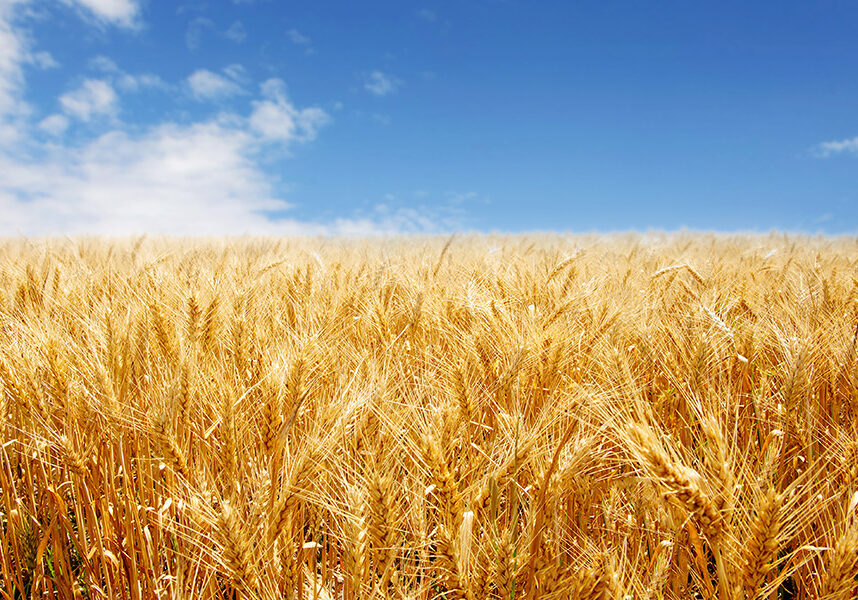

Down in the Tri-Cities, Kurt and Melody Beckley are confident growers will see the possibilities their new drone-based business, Altitude Agri Services, offers.
“I find I’m anticipating that moment when more growers see what the drones are capable of doing, and they want to embrace them and take advantage of the services we can provide,” Melody said. “It’s been a journey, a lot of fun, working with farmers and state agencies. It’s a real joy. Farming is in my roots, and I’m still a farm girl at heart.”
Both Beckleys have agriculture in their backgrounds. Melody grew up on an irrigated farm in Royal City, Wash., but went into the legal field after graduating from high school and college. Kurt, whose grandparents were dryland farmers in Ralston, Wash., grew up in Moses Lake. After graduating from Washington State University, he spent 10 years as a commercial crab fisherman in Alaska, worked as an industrial engineer for McCain Foods, and then became a commercial and agricultural banker for 15 years. Kurt’s chance encounter with a DJI Agras T30 Agriculture spray drone — and a four-hour chat with the owners — at an ag conference in Kansas City in early 2022 set the Beckleys on their new career path.

“Banking deals with relationships and clientele, and I became a little bit disenfranchised with how banking practices weren’t geared towards being wholly beneficial towards the farming industry,” Kurt said. “I just really thought, if I want to get back to what I really believe in, and both Melody and I believe in being able to help people, especially in the ag community, being able to provide another tool to farmers for chemical application purposes, what better way to get back to this and go large scale? So, I ended up coming home and pitching the idea to Melody, and she was very happy about making the transition. We could both see the writing on the wall with banking and making this career transition was a favorable move. We both embraced it and have had good support from friends and family.”
Altitude Agri Services’ main focus is using drones for pesticide and fertilizer applications, although they also offer mapping, scouting, and monitoring services. They can apply both liquid and dry products. Each of their six DJI Agras T30 drones weigh 56 pounds, have the capacity to hold about 30 liters of liquid/40 kilos of dry product, and measure nine feet from rotor tip to rotor tip. The drones can cover about 30 acres per hour, spraying three gallons per acre, and multiple drones can be used on the same field at the same time. Maps of the area to be sprayed are uploaded to the drones, which then fly mostly automatically, although there are operators standing by who can take over the controls at any moment.

“Most people are hugely surprised when they see the size of these drones,” Kurt said. “These are $30,000 pieces of machinery. It’s not like playing a video game. These are not the kind of drones you are going to buy your grandkids.”
While using drones to apply chemicals is still relatively new, the Beckleys said there are some real advantages to using the technology, especially when compared to on-ground applications. For dryland wheat farmers, Kurt pointed to losses incurred from “trampling,” the tracks left by a spray rig. According to his research, the national average yield loss due to trampling is about 4%. On 100-bushel wheat in a 1,000 acre field, that’s a potential yield loss of 4,000 bushels, which, depending on the price of wheat, could end up costing a grower tens of thousands of dollars.
“The surprising thing to us, when we would ask farmers, especially 1st or 2nd generation farmers, what their trampling loss is, they say, ‘I don’t know. I’ve never tried to analyze it because we have to spray,’” Kurt said. “With drones, we don’t have that footprint. There’s no impact to the ground.”
Kurt pointed out another advantage drones have over fixed wing and ground sprayers — because drones operate on a GPS grid, they can fly at night. Compared to a crop duster flying about 100 miles per hour 50 to 60 feet off the ground, the drones fly 12 to 15 feet off the ground doing six miles per hour. Kurt also feels there are some opportunities for water-use savings (depending on if the chemical’s label includes a range for water) since the drones fly much closer to the ground and more slowly than planes do.
“These large-scale, industrial-size drones have a distinct advantage of helping provide better efficacy, better chemical use, potential lower water use,” he explained. “The other part of this is we are carbon neutral (the drones are battery-powered). We are hoping to get into sustainable farming carbon credits, the carbon market arena. We can help farmers get additional returns by not using diesel, by minimizing the carbon out in the atmosphere.”
In order to fly the drones, the Beckleys and their employees have to be certified by the Federal Aviation Administration (FAA). All drone pilots have to have a visual observer with them, as the FAA requires that all drones be kept in visual line of sight at all times, and they have to have at least three miles of visibility.
Altitude Agri Services is one of the largest, if not the largest, drone service providers in Washington state, and as such, is “writing the book on what can go wrong, and how to fix it,” Kurt said. But even with the learning curve and the legendary reluctance of many farmers in adopting new technology, the Beckleys say it’s been rewarding to work together. Melody, because of her legal background, tends to handle much of the L&I work, compliance, and contracts. Kurt oversees field operations.
“Historically, we come at things from different angles,” Melody said. “Since we started going down this path, for whatever reason, we appreciate the fact that we see things differently.”
For more information about Altitude Agri Services, visit their website at altitudeagriservices.com.












